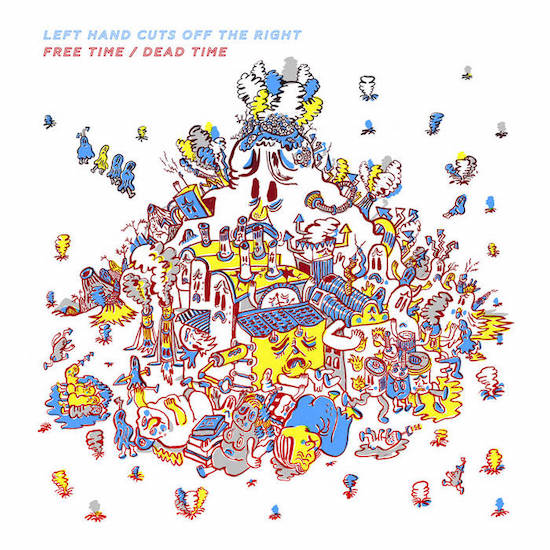There’s something wonderfully lethargic about Left Hand Cuts off the Right’s latest album, a pensive, sombre lilt that manages to eek far more emotion from the ‘free music’ toolbox than you might think possible. Seamlessly blending improvised works with composed pieces, and oscillating between them without ever changing its signature sonic palette – all zither, field recordings, and sparse percussion – Free Time/Dead Time feels both remarkably focussed and absorbingly meditative, more considered dérive than abstract meander. Rich acoustic textures merge with abstract and often subtle synthesis, a strange yet complimentary juxtaposition between the mechanistic electronics and the loose, human performance of the zither.
In many ways, the album explores similar ground to 2021’s Only Then, released on the ever-reliable Panurus Productions label. However, where that release was a composite of several live improvisations, Free Time/Dead Time double’s down on its more eloquent, poised moments, offering up an aesthetic shorn of many of its predecessor’s rough edges. That’s not to suggest we are no longer in the terrain of scraping zither strings and distant, distorted clangs, merely that such sounds are uncharacteristically well articulated – warm, and vaguely soothing, their contours tempered by a soft and atmospheric veil. The expressiveness of the strings balances against a backdrop of reverberant drones, harsher lines of high trills, and sudden stabs – reminiscent of a prepared piano – offering a tension that feeds into, rather than disrupts the work’s overall direction.
The albums lingering concept comes in the form of the tension between the titular ‘free time’ and ‘dead time’, an idea intrinsically bound to the qualities of the music. Whilst the sound world never strays from its bedrock of twanging/scratching/droning, Free Time/Dead Time nonetheless pushes its listeners to explore distinct modes of its materiality. What is at times an almost new-age drift through clattering strings and decidedly hopeful, irregular percussion – the sort of thing you might find streaming from the speakers of a particularly hardcore yoga studio – at other moments descends into a rather glum terrain of industrial ambiance, the reverb-laden tones transformed into distant howls and disembodied chants.
This dichotomy serves Left Hand Cuts off the Right well. The album rarely tires, with even its more sluggish, gloomy edges avoiding the navel-gazing cliches that so much ‘dark’ music can fall into. It is, ultimately, an album of balance, a work that deftly frames open, industrial soundscapes with a performative freedom, a decidedly playful approach to its instrumentation.


